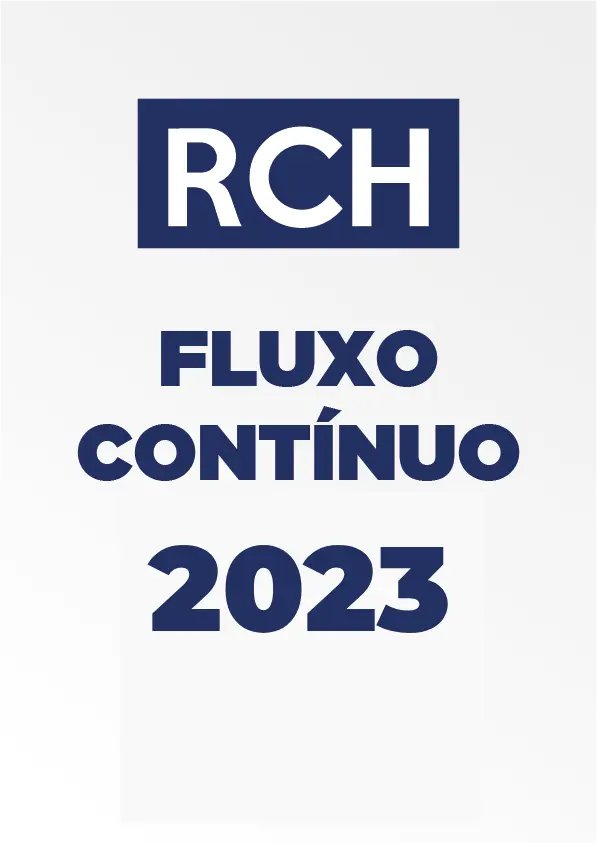REMOTE ASSESSMENT IN UKRAINIAN HIGHER EDUCATION INSTITUTIONS
Case study
DOI:
https://doi.org/10.32813/2179-1120.2023.v16.n1.a933Keywords:
E-learning, Remote assessment, COVID-19Abstract
This study narrates the implementation of remote assessment during the COVID-19 pandemic education in Ukrainian higher education institutions, based on the reflections of 600 students and 150 educators. A wide range of student and faculty members experiences from Ukrainian higher education institutions were aggregated and analyzed. The data were collected through the Google Forms survey. The research focuses on the Ukrainian experience with implementing pandemic learning designs, technological solutions, evaluation systems, and academic integrity measures. The current study also looks at the various technological interventions to teaching, learning, and assessing that have been introduced or continued in higher education institutions around the world, and how they may have helped reduce the likelihood of students committing misconduct during the pandemic distance learning. The major outcome implies that addressing the issues of online assessment, cheating, and plagiarism on multiple levels is necessary, including boosting student knowledge and ethics; overcoming the resistance of the conservative part of the participants in the educational process to educational innovations due to the relatively low level of their mastery of modern educational technologies; training teachers to detect cheating methods
Metrics
References
AlAteeq, D.A., Aljhani, S., & Eesa, D.A (2020). Perceived stress among students in virtual classrooms during the COVID-19 outbreak in KSA. Journal of Taibah University Medical Sciences, 15(5), 398-403. doi : 10.1016/j.jtumed.2020.07.004
Al-Hunaiyyan, A., Alhajri, R.A., & Al-Sharha, S (2018). Perceptions and challenges of mobile learning in Kuwait. Journal of King Saud University - Computer and Information Sciences, 30(2), 279-289. doi : 10.1016/j.jksuci.2016.12.001
Almeida, Fernando & Monteiro, José (2021). The Challenges of Assessing and Evaluating the Students at Distance. Journal of Online Higher Education, v. 5, n. 1, January 2021. Retrieved from: https://www.researchgate.net/publication/348907046_The_challenges_of_assessing_and_evaluating_the_students_at_distance
Alsahou, H., Abbas, Z., & Alfayly, A (2022). The attitude of undergraduates towards E-learning considering educational and technical challenges and requirements in Kuwaiti Applied Colleges. Journal of Technology and Science Education, 12(1), 33-49. doi : 10.3926/jotse.1358
Al-Samiri, R. A (2021). English language teaching in Saudi Arabia in response to the COVID-19 pandemic: challenges and positive outcomes. Arab World English J (AWEJ). Special Issue on Covid 19 Challenges (1) 147-159. doi : 10.24093/awej/covid.11
Arnold, S (2019). Flipping the lecture: students demonstrate learning with the panopto video capture system. Proceedings of the Society for Information Technology & Teacher Education International Conference, Mar 18, 2019. Las Vegas, NV, United States. ISBN 978-1-939797-37-7. Publisher: Association for the Advancement of Computing in Education (AACE), Waynesville, NC USA. Retrieved from: https://www.learntechlib.org/p/207819/
Bozkurt, A., Ozbek, E., Yilmazel, S., Erdogdu, E., Ucar, H., Guler, E., Sezgin, S., Karadeniz, A., Sen-Ersoy, N.,Canbek, N., Dincer, G., Ari, S., & Hakan, C (2020). A global outlook to the interruption of education due to COVID-19 Pandemic: Navigating in a time of uncertainty and crisis. Asian Journal of Distance Education, 15(1), p. 1-126. Retrieved from: http://www.asianjde.org/ojs/index.php/AsianJDE/article/view/462
Brophy, Nate, Broeckelman-Post, Melissa, Nordin, Karin, Miller, Angela, Buehl, Michelle & Vomund, Jeff (2021). Pandemic Pedagogy: Elements of Online Supportive Course Design. Journal of Communication Pedagogy, 5, 95-114. doi : 10.31446/JCP.2021.2.12
Can, E (2020). Coronavirüs (COVID-19) pandemisi ve pedagojik yansımaları: Türkiye’de açık ve uzaktan eğitim uygulamaları. Açıköğretim Uygulamaları ve Araştırmaları Dergisi, 6(2), 11-53. Retrieved from: https://dergipark.org.tr/tr/download/article-file/1179832
Chirumamilla, A., Sindre, G., and Nguyen-Duc, A (2020). Cheating in e-exams and paper exams: the perceptions of engineering students and teachers in Norway. Assess. Eval. High. Educ., 45, 940–957. doi : 10.1080/02602938.2020.1719975
Cutshall, Robert & Mollick, Joseph & Bland, Eugene (2012). Use of an e-Textbook and Web-Based Homework for an Undergraduate Business Course: Students' Perceptions. Journal of the Academy of Business Education, v. 13, 1-15, 2012. Retrieved from: https://www.researchgate.net/publication/242564663_Use_of_an_e-Textbook_and_Web-Based_Homework_for_an_Undergraduate_Business_Course_Students'_Perceptions
Daniel, S. J (2020). Education and the COVID-19 pandemic. Prospects, 49, 91–96. doi : 10.1007/s11125-020-09464-3
Jones, Christopher (2008). Student Perceptions of the Impact of Web-based Homework on Course Interaction and Learning in Introductory Accounting. Issues in Information Systems, 9, 2008. Retrieved from: https://pdfs.semanticscholar.org/1093/c717ce15acae05c65a664bc5266c9e0bf999.pdf
Gamage, A. A. K., de Silva, E. K., & Gunawardhana, N (2020). Online delivery and assessment during COVID-19: Safeguarding academic integrity. Education Sciences, 10(301), 1-24. doi : 10.3390/educsci10110301
Idwan, S., Fayyoumi, E., Hijazi, H., & Matar, I (2021). COVID-19 Pandemic Endorses New Era of E-learning Case Study: Hashemite University. Journal of e-Learning and Knowledge Society, 17(2), 56-65. doi : 10.20368/1971-8829/1135416
Karimi, A., & Manteufel, R. D., & Herbert Acero, J. F (2021), Challenges in Virtual Instruction and Student Assessment during the COVID-19 Pandemic. Proceedings of ASEE Virtual Annual Conference Content Access, Virtual Conference. doi : 10.18260/1-2—36789
Khan, Zeenath Reza & Sivasubramaniam, Shivadas & Anand, Pranit & Hysaj, Ajrina (2021). ‘e’-thinking teaching and assessment to uphold academic integrity: lessons learned from emergency distance learning. International Journal for Educational Integrity, 17. doi : 10.1007/s40979-021-00079-5
Manteufel, R., Karimi, A, and Bhounsule, P (2020). Use of Phones and Online Tutors to Cheat on Engineering Exams. Proceedings of 2020 ASEE-GSW S Section Virtual Annual Conference, April 2020. Retrieved from: https://peer.asee.org/use-of-phones-and-online-tutors-to-cheat-on-engineering-exams.pdf
Meccawy, Z., Meccawy, M. & Alsobhi, A (2021). Assessment in ‘survival mode’: student and faculty perceptions of online assessment practices in HE during Covid-19 pandemic. Int J Educ Integr, 17, 16. doi : 10.1007/s40979-021-00083-9
Nenko, Y., Кybalna, N., & Snisarenko, Y (2020). The COVID-19 distance learning: insight from Ukrainian students. Revista Brasileira De Educação Do Campo, 5, e8925. doi : 10.20873/uft.rbec.e8925
Nenko, Y., Orendarchuk, O., Rudenko, L., & Lytvyn, A. (2021) Anti-crisis management in higher education institutions of Ukraine during the Covid-19 pandemic. Revista Brasileira De Educação Do Campo, 6, e12838. doi : 10.20873/uft.rbec.e12838
Okereke, M., Williams, A.E., Emmanuella, N.C., Ashinedu, N.U., & Mairaj, M.W (2020). COVID-19: challenges affecting the uptake of E-learning in pharmacy education in Africa. PanAfrican Medical Journal, 35(40). doi : 10.11604/pamj.supp.2020.35.2.23910
Pappas, I. O. & Giannakos, M. N (2021) Rethinking Learning Design in IT Education During a Pandemic. Front. Educ., 6:652856. doi : 10.3389/feduc.2021.652856
Rahayu, Retno & Wirza, Yanty (2020). Teachers’ Perception of Online Learning during Pandemic Covid-19. Jurnal Penelitian Pendidikan, 20, 392-406. doi : 10.17509/jpp.v20i3.29226
Reddy, L., Letswalo, M. L., Sefage, A. P., Kheswa, B. V., Balakrishna, A., Changundega, J. M., … & Nemakhavhani, T. E (2022). Integrity vs. Quality of Assessments: Are They Compromised on the Online Platform? Pedagogical Research, 7(2), em0121. doi : 10.29333/pr/11840
Sahu, P (2020). Closure of Universities Due to Coronavirus Disease 2019 (COVID-19): Impact on Education and Mental Health of Students and Academic Staff. Cureus, 12(4).
Suryaman, M., Cahyono, Y., Muliansyah, D., Bustani, O., Suryani, P., & Fahlevi, M (2020). Covid-19 Pandemic and Home Online Learning System: Does It Affect The Quality Of Pharmacy School Learning? Systematic Reviews in Pharmacy, 11(8). Retrieved from: https://www.sysrevpharm.org/articles/covid19-pandemic-and-home-online-learning-system-does-it-affect-the-quality-of-pharmacy-school-learning.pdf
Teymori, A.N., & Fardin, M.A (2020). COVID-19 and Educational Challenges: A Review of the Benefits of Online Education. Annals of Military and Health Sciences Research, 8(3). doi : 10.5812/amh.105778
Zainuddin, Z., Shujahat, M., Haruna, H., & Chu, S. K. W (2020). The role of gamified e-quizzes on student learning and engagement: an interactive gamification solution for a formative assessment system. Comput. Educ., 145:103729. doi : 10.1016/j.compedu.2019.103729
Downloads
Published
How to Cite
Issue
Section
License
Copyright (c) 2023 Human Sciences Journal - RCH

This work is licensed under a Creative Commons Attribution 4.0 International License.
The publications of the Human Sciences Journal are registered under the Creative Commons Attribution CC-BY license.
1. The contents of the manuscripts are the exclusive responsibility of their author.
2. It is allowed the total or partial reproduction of manuscripts published in the journal, provided that the source is cited.
3. When submitting their manuscript to the Journal, the authors certify that they are of their own authorship and unpublished (not published in any digital or printed media).
4. The copyright of the articles published in the Journal are of the author, with first publication rights reserved for this journal.
5. For disclosure purposes, the Journal may replicate the works published in this journal in other media, such as social networks (Facebook, Academia.Edu, etc.).
6. The Journal is of public access, therefore, the authors who submit manuscripts agree that they are of free use.
7. In case of any illegality, fraud, or other attitude that puts in doubt the honesty of the publication, especially the practice of plagiarism, the manuscript will be automatically rejected.
8. If the manuscript has already been published, it will be immediately removed from the base of the Journal, its citation linked to the Journal will be prohibited and the cancellation of the referred publication shall be reported in the next issue of the one in which the article was published. In case of the procedure for the withdrawal of the paper the authors will be informed beforehand, being guaranteed the right to a broad defense.
9. The personal data provided by the authors will be used exclusively for the services provided by this publication and will not be made available for other purposes or to third parties.





